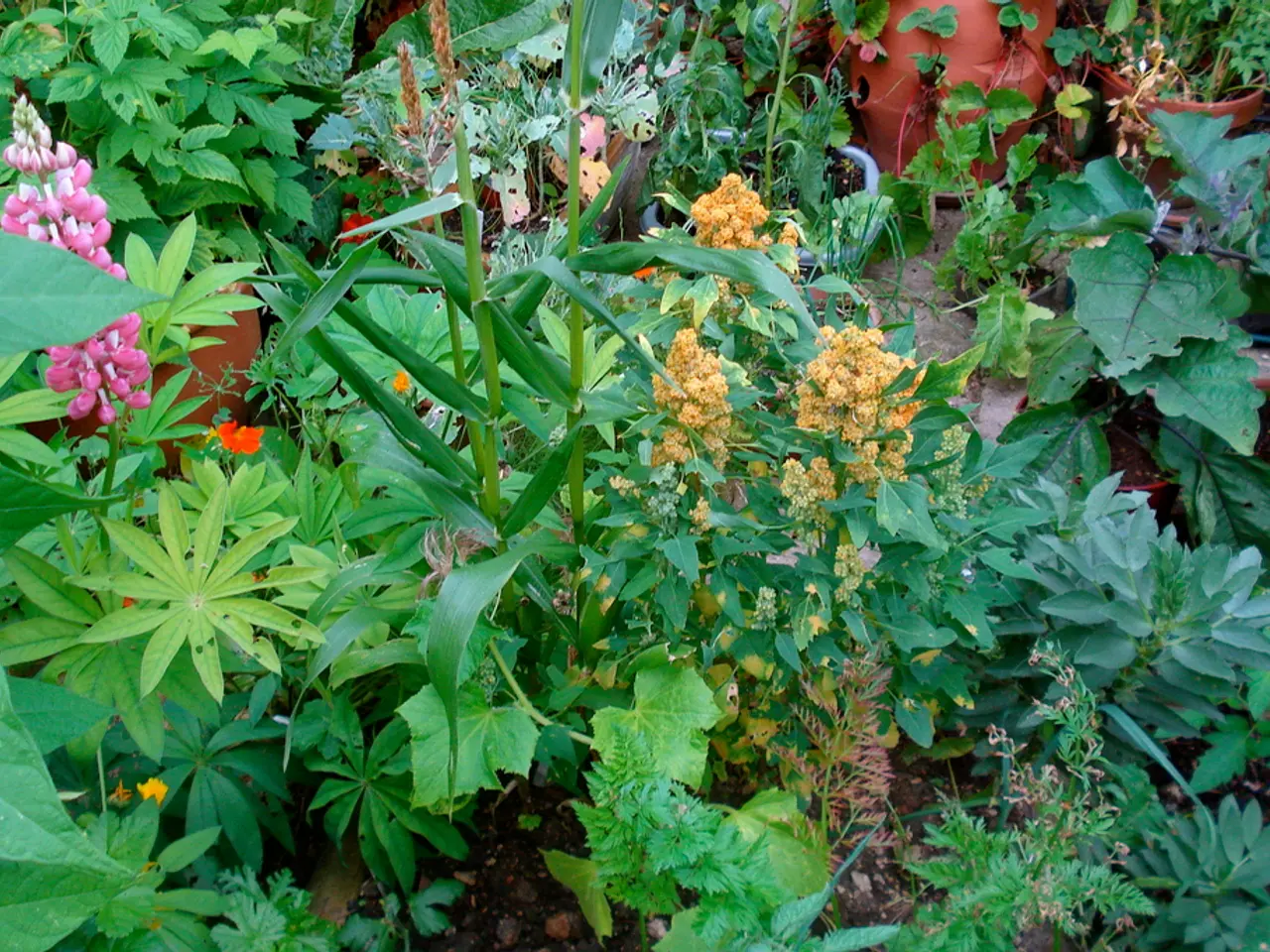Urgent Call to Protect Medicinal Herbs: National Medicinal Plants Board CEO Warns of Consequences for Future Generations
The National Medicinal Plants Board (NMPB) has announced plans to establish herbal gardens in 700 schools as part of its future initiatives to support nutrition security. This initiative, known as the "Eden of Elixirs," was revealed in a press statement and reported by media outlets.
According to the NMPB CEO, these gardens will be set up under government initiatives to promote access to nutritious herbs and educate students about medicinal and edible plants. The aim is to contribute to nutrition security, following the model of school garden programs that combine hands-on learning with food production in other regions.
However, the reporting does not provide details about the rollout timeline, the list of target schools, funding amounts, exact plants to be grown, or which ministry will lead the implementation.
The "Eden of Elixirs" garden, established by the Manav Rachna Centre for Medicinal Plant Pathology (MRCMPP) with support from the NMPB, serves as an example of how such gardens can be managed. The garden features over 130 species of medicinal and aromatic plants, including Ashwagandha, Brahmi, Tulsi, Gudmar, Giloy, Vach, and more.
MRCMPP is also focusing on sustainable development by providing high-quality planting material of medicinal plants to local farmers to promote sustainable livelihoods through medicinal plant cultivation. The garden is designed in the shape of a flower with eight petals, each representing different systems of the human body.
The launch of the "Eden of Elixirs" garden marked the inauguration of "A Comprehensive Book on Medicinal Plants," edited by Dr. Nidhi Didwania and Dr. Jeetendra Kumar. The book was developed through collective expertise and extensive student engagement.
Dr. Mahesh Kumar Dadhich, CEO of the NMPB, emphasized the importance of preserving medicinal plant heritage. He advocated for the replication of community-driven initiatives like 'Eden of Elixirs' in schools and community centers across the nation.
The event reaffirmed MRIIRS's commitment to the United Nations Sustainable Development Goals, specifically SDG 2 (Zero Hunger), SDG 3 (Good Health and Well-being), SDG 13 (Climate Action), and SDG 15 (Life on Land). The content was sourced from a press release and published as received, with no responsibility or liability for its accuracy, completeness, or content. The Tribune is not responsible for the content of the same.
- The CEO of the National Medicinal Plants Board (NMPB) plans to use herbal gardens in schools, known as the "Eden of Elixirs," to help students learn about medicinal and edible plants and promote nutrition security.
- These gardens are part of a larger government initiative to make nutritious herbs more accessible and may be modeled after successful school garden programs that combine education with food production.
- With over 130 species of medicinal and aromatic plants, the "Eden of Elixirs" garden at the Manav Rachna Centre for Medicinal Plant Pathology serves as a example of how such gardens can be managed and contributes to the sustainable development of local farming communities.
- The establishment of the "Eden of Elixirs" garden and the release of a Comprehensive Book on Medicinal Plants reaffirm the Manav Rachna International Institute of Research and Studies' (MRIIRS) commitment to sustainable development goals, particularly Zero Hunger, Good Health and Well-being, Climate Action, and Life on Land.




